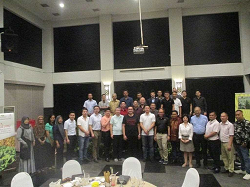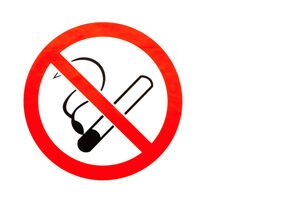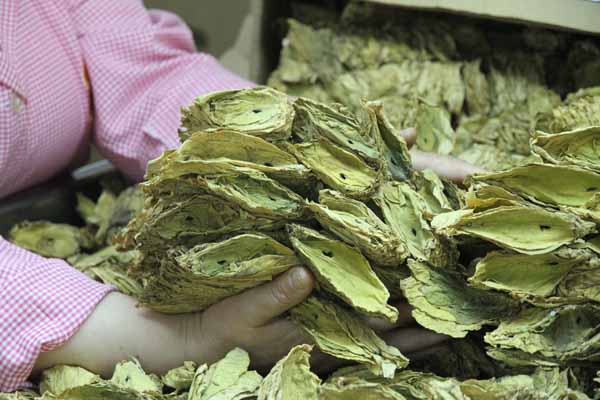Far East Leaf Indonesia (FELI), a wholly owned subsidiary of Star Tobacco International, has inaugurated its new headquarters in the former embassy building of the East Timor Consulate in the diplomatic suburb of Renon in Denpasar Bali.
A Star press note issued on Tuesday, said the event was attended by more than 20 major clients and 10 major suppliers of FELI.
‘FELI has been active in Indonesia over the past five years and has become a mainstream supplier to small and medium companies in the Java region,’ the note said. ‘This success can be attributed to FELI’s investment in infrastructure in tobacco storage depots in Jebel…’
The storage facility is said to carry a full range of imported Virginia, Burley and oriental tobaccos, as well as reconstituted tobacco and fines.
FELI is also a major exporter of Indonesian tobaccos to Star cigarette- and cigar-producing clients in Europe and Central America.
The inauguration (pictured) was hosted by Mehmet Ayyildiz, FELI’s vice president.
Meanwhile, earlier this month, Star Tobacco International announced the opening of its new headquarters in Istanbul, Turkey.
In a press note issued on Friday, Star said the previous building had become inadequate to support the growth of the company; so it had moved into a six-floor building.
The new building had enough space for 50 employees and included a conference floor and a social floor for the use of employees during their spare time.
The new headquarters is at: Mecidiye Mahallesi, Taş Basamak Sokak. No: 15 Beşiktaş-Ortaköy, İstanbul, Turkey.
Tag: Turkey

Star Tobacco expanding

Regulatory board closing
Turkey’s Tobacco, Tobacco Products and Alcoholic Beverages Market Regulation Board (TAPDK) is being closed, according to a story in The Hurriyet Daily News.
The closure follows the introduction by the government of a number of key revisions to its economic management strategy that has involved, in part, the shutting of regulatory and supervisory bodies that had overseen the tobacco and sugar industries.
The changes were announced in an emergency decree published in the Official Gazette on December 24.
TAPDK had responsibility for the registration, authorization and regulatory systems in respect of tobacco, tobacco products, alcohol and liquor.
It was responsible for issuing regulations aimed at avoiding medical and social harms associated with tobacco and alcohol consumption.
And it was responsible for the implementation of guidelines aimed at the enforcement of laws.
TAPDK’s duties have been transferred to the Health Ministry and the Food, Agriculture and Livestock Ministry.

Reduced-risk plan dropped
A proposal that would have allowed the importation and production of reduced-risk alternatives to cigarettes has been withdrawn in Turkey.
According to a note posted on Friday on the website of the Europe office of the World Health Organization, Turkey’s Minister of Finance, Naci Ağbal, said that plans to allow the importation and production of ‘heat-not-burn tobacco products and electronic nicotine delivery systems (ENDS)’ in Turkey had been withdrawn.
Speaking during the Turkish Grand National Assembly Commission on Planning and Budget on October 17, he confirmed that these products would not be produced or sold in the country.
The announcement was said to have followed ‘strong public reaction to the threats posed by the tobacco industry’s proposals to begin importing and producing heat-not-burn and ENDS products …’.
The announcement followed also a press conference on October 17 at which WHO representatives, academics and health specialists jointly voiced their condemnation of the tobacco industry’s proposed new strategy.
The press conference was said to have been called in reaction to an announcement made earlier by Philip Morris International in which it said it intended to support the establishment of a new entity, the Foundation for a Smoke-Free World.
‘As part of this initiative, the tobacco industry planned to introduce a new range of harmful products,’ the note said.
‘These heat-not-burn and ENDS products pose serious challenges to public health due to their high levels of nicotine.’
The note said the consumption of e-cigarettes had ‘increased at an alarming rate among youth and young adults’ in recent years, raising the probabilities of higher numbers of cigarette smokers in the future.
In warning against the risks of loosening tobacco control laws, WHO’s representative to Turkey, Dr. Pavel Ursu, stressed the importance of ‘political commitments’ made under the WHO Framework Convention on Tobacco Control. Making reference to the intended amendment to the Law on the Organization and Duties of the Tobacco and Alcohol Market Regulatory Authority, he said the proposed amendments contravened the global consensus … “For the continuation of the success of Turkey in tobacco control, we need a firm commitment by all stakeholders rejecting the recent influence of the tobacco industry,” he added.
During the press conference, Professor Mustafa Necmi İlhan, Dean of the Faculty of Health Sciences at Gazi University, said the government should work hand-in-hand with academia and non-governmental organizations in forming national policies.
Professor Hilal Özcebe, public health specialist and professor at Hacettepe University, said the tobacco industry had tried to hide the real effects that these new products had on health. “The tobacco industry states that electronic products have fewer negative effects on public health but this is a totally false argument,” she said.
Electronic devices had the same level of nicotine as widely used products and caused similar vascular disorders and cardiovascular diseases, she added.
The WHO note is at: http://www.euro.who.int/en/health-topics/disease-prevention/tobacco/news/news/2017/10/turkey-withdraws-plans-to-loosen-tobacco-control-laws.

Making sales more difficult
Turkey is preparing a bill that will extend restrictions on the sale of tobacco products, according to a Trend News Agency (Azerbaijan) story citing Turkish media reports.
The country’s Deputy Prime Minister Recep Akdag was quoted as saying that the new law would ‘prohibit the sale of tobacco products at the cash desks of stores’.
Anti-tobacco bans and restrictions were stepped up in Turkey from January 2015.
Currently, the Trend story reported, all tobacco products were sold in black packs to make them less attractive.
Turkey imposed in 2008 a ban on smoking tobacco in public places.

Tobacco under pressure
The leader of Turkey’s main opposition party, Kemal Kılıçdaroğlu, has said that Turkey’s oriental tobacco is being eradicated, according to a story by Zülfikar Doğan for Al-Monitor.
“In 2002, 405,882 families were making a living from tobacco,” said Kılıçdaroğlu during a CHP [Republican People’s Party, Cumhuriyet Halk Partisi] parliamentary meeting. “In 2015, that shrunk to 56,000. We gave up growing our own tobacco. Foreigners began importing, and as of 2012, Turkey suddenly became a net tobacco importer.”
Another problem, Kılıçdaroğlu said, concerned cigarette taxation, which stood at 84 percent and which had caused a sharp rise in the number of people rolling their own cigarettes.
The story reported that Turkey’s farmers, livestock producers and their related unions were emerging as a new and unexpected mass opposition in the country, staging rallies and marches to protest against sustained heavy economic losses.
Meanwhile, in the tobacco sector, growers are said to have reacted with fury to threats of heavy prison sentences and fines.
Tobacco growers have protested against new regulations restricting how, where and when Turks can produce tobacco.
The aim of the legislation was said to be aimed at preventing tobacco smuggling.
But the Tobacco Experts Association said that with the new restrictions, thousands of tobacco growers would be facing years in jail and heavy fines.
The association expressed opposition also to the liberalization of electronic cigarettes and alleged that the new regulations were drafted in line with wishes of foreign cigarette companies and would soon mean the end of the local tobacco industry.
The full story is at: http://www.al-monitor.com/pulse/originals/2017/10/turkey-farmers-protest-against-government-policies.html.

Party poopers
Police in Istanbul, Turkey, raided a vape party on Sunday at which there were at least 800 guests, according to a Hurriyet Daily News story citing the daily, Habertürk.
They detained three organizers and handed fines to all attendees for ‘smoking indoors’.
Vaping devices are deemed to be tobacco products in Turkey, and legislation that applies to tobacco products also applies to such devices.
After invitations for the ‘unlimited vape party’ were posted on Facebook, police put the location on İstiklal Avenue in Istanbul’s Beyoğlu district under surveillance.
After the organizers had rented the terrace of a restaurant for the party, they announced that entrance was free and that various kinds of vaping devices would be available for attendees free of charge.
The Health Ministry has not yet licensed the import of any vaping devices, though such products do enter the country, where they are sold for between TL150 and TL450, over the Internet or through illegal trafficking.

More bans due in Turkey
Turkey is expected to toughen its already-tough anti-tobacco regulations, according to a story by Ali Mustafayev for AzerNews.
In 2008, Turkey introduced legislation banning smoking in workplaces and enclosed public places, and on public transport.
Now, the Health Ministry has announced that the ban on smoking might be extended to private cars.
And the Ministry reportedly said that a common standard would be applied to imported and locally-made tobacco products. ‘A tobacco producing company’s brand and logo cannot occupy more than five percent of the area on a pack of tobacco product,’ the ministry was quoted as saying.
A new wave of restrictions on tobacco products were introduced from January 2015 under which all tobacco products in Turkey are sold in black packs so as to be less attractive.
Nevertheless, smoking in Turkey is extremely popular at all levels of society. ‘Turkish people consider smoking almost as a favorite pastime,’ the writer said.
Turkey has a smoking incidence of about 31 percent, and, in 2015, cigarette consumption there was 125 billion, a figure that includes contraband cigarettes and loose tobacco.

$1 billion of tobacco exports
 The value of Turkey’s exports of leaf tobacco and tobacco products exceeded $1 billion last year, 10 percent up on the value of such exports during 2015, according to a story in the Daily Sabah.
The value of Turkey’s exports of leaf tobacco and tobacco products exceeded $1 billion last year, 10 percent up on the value of such exports during 2015, according to a story in the Daily Sabah.The value of tobacco product exports amounted to $652 million, while the value of tobacco leaf exports reached $358 million.
The tobacco product exports comprised mainly cigarettes sent to Middle Eastern countries, which were worth about $501 million.
Iran was the biggest importer of Turkish cigarettes in 2016, followed by Bahrain and Saudi Arabia.
The US was the main export destination for leaf tobacco produced in Turkey, followed by Belgium and Russia.
Tobacco exports generated the highest foreign currency income for Turkey after hazelnut exports, said the head of Aegean Exporters’ Association Mahmut Özgener.
Özgener added that Turkey had modern tobacco processing facilities and that if legislation were altered so that Turkey could process tobacco imported from overseas, the value of Turkey’s tobacco exports would soon reach $1.5 billion.
FlexLink opens facility in Turkey
FlexLink, a provider of production logistics solutions, has opened a facility in Izmir, Turkey.
The new FlexLink operations provide Turkish companies with direct access to the company’s latest technologies, including the recently launched conveyor platform X65. FlexLink’s new facility in Turkey is located close to that of G.D, a leading supplier of tobacco machinery.
“We have started with an experienced team of sales and application engineering with the know-how about our existing customers and production processes applied.” says Mattias Perjos, CEO of FlexLink. “The Turkish market is of strategic interest to FlexLink and the feedback from our customers is strong.”
Turkey to toughen tobacco laws
The Turkish government wants to toughen the country’s laws on smoking and alcohol consumption, according to a Trend news agency story quoting a Sabah newspaper report.
The report said that a new bill would be put before parliament, though it did not indicate when that would happen.
Under the bill, smoking, already banned in enclosed public places, would be forbidden in open public spaces.
The bill would ban smoking by public transport drivers, presumably only while operating their vehicles.
And it would increase the penalties for violating smoking bans.









